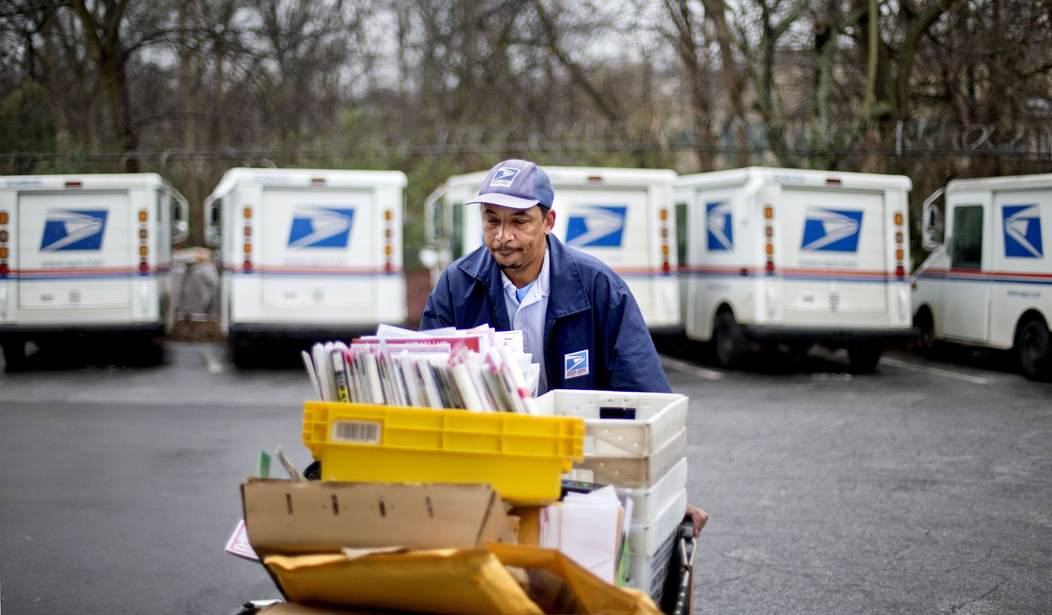Reform cannot come soon enough for the ailing United States Postal Service (USPS) which runs the risk of running out of cash in a few years. The American people were promised a business plan from Postmaster General Megan Brennan, but taxpayers are still largely in the dark about a “10-year plan” nearly a month after Brennan’s promised delivery date (does anybody else see the irony in a late delivery from USPS?). Based on a first draft released to lawmakers and “stakeholders,” USPS leadership will likely try to curb bloated benefits. But a recent inspector general (IG) report points to another problem that needs fixing: a predatory pricing system that enriches a few connected companies at millions of taxpayers’ expense. The USPS should pursue broad-based changes that benefit all consumers, instead of half-measures that leave cronyism intact.
According to preliminary discussions with lawmakers, USPS believes that controlling employee benefits and setting up individual, market-based pension accounts for new employees will bring the USPS back into the black. While these are important steps, a June IG report calls concern to the little-known, seldom-acknowledged “PC Postage program” which costs taxpayers hundreds of millions of dollars per year. The program is designed to help consumers (i.e. households, startups, and large businesses) buy postage on their personal computer via special software, which sounds great in theory.
As the IG points out, the problem is with the “small set of private companies” entrusted to “build, maintain, and distribute the software that customers use to buy and print postage.” Stamps.com and Pitney Bowes control nearly all this market, contracting with the USPS to buy postage at steeply discounted rates which they can then sell to consumers at a markup. When USPS sells postage at a loss to these mega-corporations, it hopes that Stamps.com and Pitney Bowes will use discounts to lure in e-commerce companies that would have otherwise shipped with UPS or FedEx.
But a 2017 analysis by Washington, D.C.-based think tank The Capitol Forum found that Stamps.com and Pitney Bowes were selling discounted postage to small companies that would’ve bought postage with the USPS anyway. PC Postage gatekeepers profit from the markup, as the USPS loses money on postal prices that should’ve been higher. According to a January report from the Taxpayers Protection Alliance (TPA), these bogus discounts cost the agency (and taxpayers by extension) nearly $300 million per year.
Recommended
Despite the clear and obvious problems with the program, PC Postage arrangements are still shrouded in secrecy. Even though the IG admits that PC discounts “can hurt the Postal Service by reducing the rates that customers pay to it” and notes an alarming lack of competition in the program, basically all of its financial analysis and recommendations are classified Mueller-style. There remains hope, though, that the USPS can rein in this unfair program if the IG and Congress ramp up the pressure. In February, the USPS announced it was cutting off a sweetheart deal with Stamps.com which in part made possible the steep PC Postage discounts pocketed by the company. Since then, the agency has signaled its willingness to renegotiate the side-arrangements that have made these companies a pretty penny at taxpayers' expense.
But as the IG argues, there needs to be far more scrutiny on the dubious discounts that are freely handed out by an agency hemorrhaging billions of dollars. As the USPS gears up its broad-based reform effort, the agency should begin a public investigation examining if PC players such as Stamps.com are misusing the discounts they freely enjoy. No one reform, whether it be pension changes, curtailing the PC Postage program, or consolidating facilities, will be a panacea for an agency that has lost $70 billion over the past decade. But the USPS should do everything in its power to make sure taxpayers and consumers aren’t left holding the bill for leadership’s carelessness.

























Join the conversation as a VIP Member